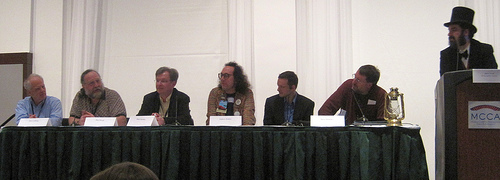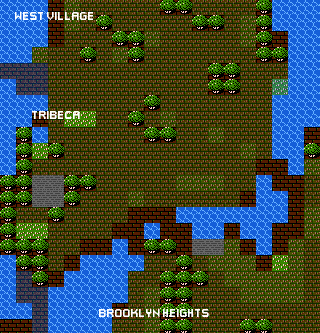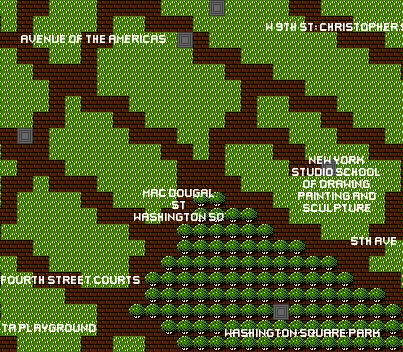I’m here at LibrePlanet 2010. Although I’m not going to bust out with full-conference liveblogging (that’s so 2005) I do have a quick summary, and a reaction, to today’s opening talk and the ensuing discussion. The presentation was “We’re done cloning Unix, what next?” by John Gilmore, co-founder of the EFF and founder of the “alt” branch of USENET.
My notes from Gilmore’s talk: The GNU plan from the beginning (with Stallman writing Emacs) was to replace proprietary Unix with free software. Now … “We’re sort of like one of those medical charities that has succeeded in wiping polio from the face of the earth.” And it’s not only Unix – CodeWeavers has also pretty much finished reimplementing the user side of Windows, so that Wine (a free software Windows emulator) works more often than not with arbitrary Windows programs. Replacing Windows makes sense as an external goal, but “how many people in our community want to understand the guts of Windows and replicate it?” So, what is our common goal now?
Mentioned in Q&A: ReactOS … We’re not finished with free software beyond the nerdy command line; for instance, video editing; free software for hackers only as opposed to school systems, the business world? … Wine and Samba are very tactical moves to keep the majority market-share players from having control; what about Facebook? … Reverse-engineering tools to understand binary programs … Support the abandoned Windows XP platform for the users trapped there … Communications, content, and services; for an open Facebook, we need open services … free software that uses new paradigms, not the Microsoft model … Having a solid computer gaming framework would be good; the best games make you think and expand your mind … Wine should be like Vaseline, easing the transition from non-free to free; we need a better UI … What about free software in cars?
Although I am part of the FSF, I’m in no way a GNU hacker and my participation in free software isn’t nearly as great as with most people in the room. So I decided, rather than jumping in to the discussion, to offer my comment and my suggestion for a post-Unix project here:
The real thing that the group here has to offer the world is not to follow up a free Unix-like system with a free Windows-like one or with free firmware. It’s probably not even a better user interface or better video-editing software. I suggest that it’s the power to program the computer and to control computation and networking, not just to edit documents and media. Obviously computers *can* be programmed right now, but people like the ones here have a oligopoly on this sort of programming. Whether or not we’re equally skilled in all areas, we’re for the most part comfortable with the idea writing Perl to process text, setting up cron jobs, writing GUI applications, writing servers in Python, and programming games. We don’t think it’s beyond our reach.
That’s not a typical attitude. Maybe it was in 1983, when home computers ran BASIC (gasp – Microsoft BASIC! Ripped off from Dartmouth…) and people who bought these computers and brought them home learned to program them as a matter of course. But it isn’t now. Proprietary software discourages programming by “ordinary people” and encourages office-style and traditional production-style approaches. The people here who hack on GNU aren’t, generally speaking, expert video editors or UI designers, although there are surely of few of each here. The real strength that the group has is in being expert at programming. What they can offer the world, beyond free imitations of existing systems, is a computer that is more free to program, that by design (not just by license) encourages users to work and play powerfully as programmers.
GNU’s first project, Emacs, is not just a text editor; it is also a programmable environment, a major part of its appeal to many programmers. To look to more recent projects, I find Processing a particularly powerful piece of free software that allows students and artists to use visual, computational capabilities and to understand programming in an extraordinary context. What if the improved programmability of the computer, in a broad sense, for many purposes, became a major goal for free software developers? Couldn’t we do a few orders of magnitude better, and allow for people to be even more empowered by the use (and programming) of computers?





